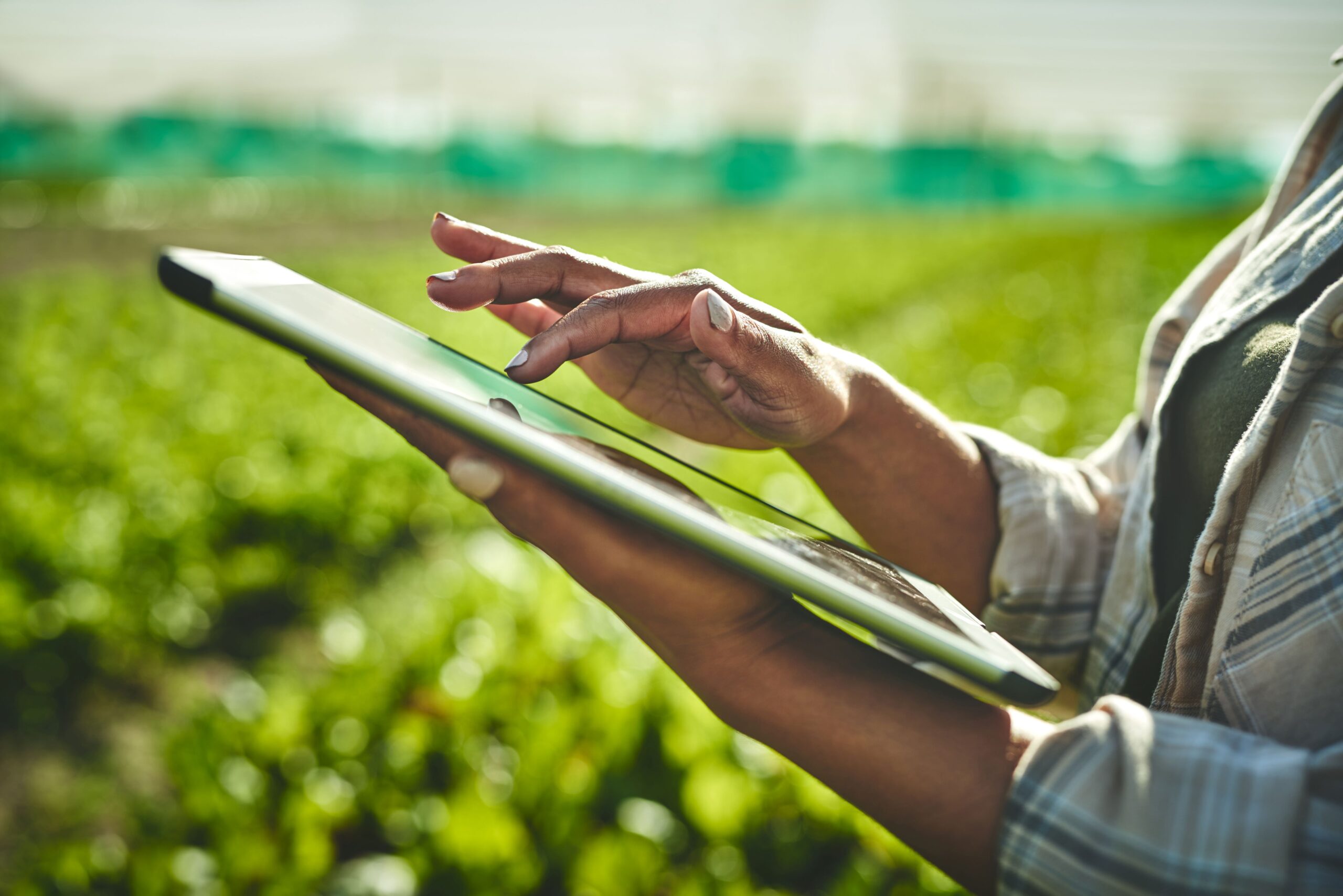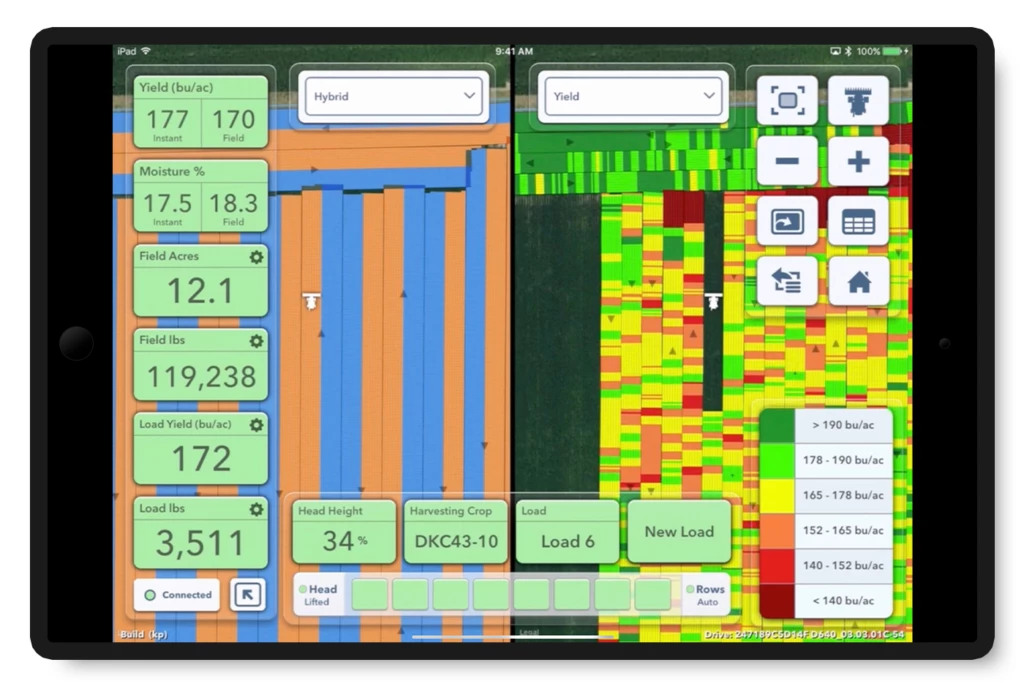
Agriculture is one of the most vital sectors of human civilization, providing food, feed, fiber, and fuel for billions of people. Beyond addressing the increasing demands from the growing world population and limited arable land, the industry is facing unprecedented challenges including climate change, environmental degradation, resource scarcity, and market volatility. Addressing these challenges is more than a problem for farmers. Productivity in the agriculture sector impacts every single person. To secure our future and the availability of food, the agriculture industry must innovate.

Azure Data Manager for Agriculture
Innovate with agriculture data.
Microsoft has long recognized that innovation starts with data. But one major obstacle is siloed data—that’s where Azure Data Manager for Agriculture comes in. With Azure Data Manager, customers and partners like Land O’Lakes, Bayer, and others across the agri-food value chain have access to industry-specific data connectors and capabilities to unify relevant data from disparate sources. This empowers organizations with high quality datasets to accelerate the development and adoption of digital agriculture solutions. Instead of devoting resources to data management or duplicating work others have already done, organizations can accelerate product innovation, building differentiated solutions with the ability to leverage readily available, high-quality, and abundant data: from satellites, soil sensors, farming equipment, weather providers, and more.
Organizations can use in-house development or third-party services to take advantage of Azure Data Manager for Agriculture capabilities, speeding the path to comprehensive analytics and business intelligence solutions delivering insight into soil, vegetation, plant health, carbon sequestration, pest and disease management, environmental impact, and more. With a strong data foundation, organizations can focus on driving outcomes across a wide variety of use cases: from precision farming, detailed risk analysis for insurers, timely supply planning for ingredients, and accurate tracking of product provenance.
But access to data is just the first step in our journey to empowering industry transformation.
Harnessing data, fueling innovation, and scaling sustainability
Across industries, the transformative power of AI and machine learning (ML) is increasing efficiency and productivity of companies worldwide. Agriculture is no exception.
As we recently announced, the latest updates to Azure Data Manager for Agriculture are ushering in the era of AI in agriculture. Bringing cloud-scale data movement and transformation to agriculture-specific scenarios with integrations to Microsoft Fabric, Azure Data Manager for Agriculture is unlocking new opportunities across the ecosystem. With Fabric Data Factory, third-party data partners can build connectors to ingest data from more sources into a unified database, unlocking new insights across the business.
These advancements also support the real-world application of language models in agriculture. Enabling the seamless retrieval of data mapped to farm operations, sensors, weather, and imagery, these language model capabilities allow farming-related context, insights, activities, and outcomes to be queried using conversational, natural language prompts in a chat interface. With generative AI capabilities across use cases throughout the agri-food value chain, farmers and organizations will gain access to cutting-edge technologies to maximize yield and optimize resources, while minimizing environmental impact. Soon stakeholders across the value chain will be able to simply ask an AI-powered chat bot questions and quickly receive a precise answer to help them work effectively. A farmer can ask “which field had rain last night?” to assess prioritize work across a sprawling operation, an insurer can see “which farms got hit by a hailstorm yesterday” to better understand potential damage, and an agronomist can compare yields of previous seasons with planting dates to offer more accurate precision farming guidance.
Bayer’s Crop Science division previewed their testing of a new copilot, built on top of Azure Data Manager for Agriculture. Users can ask the Bayer copilot about different scenarios, such as “which fields had in-season crop protection applications last year?” or “what’s the difference between the planting and harvested area across all my fields?”, allowing users to easily interact with complex agronomic data across fields, crops, and seasons by asking questions through a chat interface.
Cultivating revolutionary insights: Bayer and Azure Data Manager for Agriculture
Bayer is also leading the way in capturing the potential of Azure Data Manager for Agriculture more broadly: taking advantage of current capabilities and testing upcoming functionality within their farmer-facing Climate FieldView platform.
 Figure 1: Climate FieldView provides instant crop performance insights for farmers and their agronomic advisors, including this side-by-side look of planting information (left) and live yield map (right) during harvest.
Figure 1: Climate FieldView provides instant crop performance insights for farmers and their agronomic advisors, including this side-by-side look of planting information (left) and live yield map (right) during harvest.
As an industry-leading digital-farming solution, FieldView is supporting over 220 million acres of farmland globally. That’s about twice the size of California. Leveraging Azure Data Manager’s connector architecture, FieldView will expand its connectivity to more data sources and original equipment manufacturers (OEMs). This helps Bayer focus on the next generation of innovative digital solutions to help farmers succeed, while ensuring each farmer’s data stays private and protected.
Behind the scenes, Azure Data Manager for Agriculture is enabling Bayer’s Climate FieldView datasets, including weather and satellite imagery—making it easier for Bayer to provide rich data and insights to farmer customers. Upcoming Fabric integration with Azure Data Manager for Agriculture will allow Bayer teams to develop secure and compliant data connections even faster, making it viable for Bayer to quickly integrate new data streams and make them available to internal and external customers, driving value across agriculture and connected industries.
“Azure Data Manager for Agriculture takes care of the important data infrastructure and operational details, which frees up our Climate FieldView team to focus on delivering additional innovation for our farmer customers.”—Ines Kapphan: Data & Cloud Solutions, Bayer’s Crop Science division.
In fact, one of agriculture’s biggest technology challenges is an overall lack of data interoperability. Once initiated by a farmer, enterprise customers from across the agri-food value chain, such as retailers, financial institutions, and consumer packaged goods (CPG) companies can now connect and auto-sync planting, application, and harvest activity files from FieldView, enabling the exchange of data between solutions built on Azure Data Manager. Supported by a more connected ecosystem, farming operations can better optimize inputs, maximize profits, and produce crops that can feed and fuel increasing market demand.
The partnership between Microsoft and Bayer is a significant step forward in accomplishing Bayer’s ambitious target of 100 percent digitally-enabled sales in its Crop Science division by 2030. This also accelerates the ability to bring new value and deliver outcomes-based, digitally-enabled solutions to farming customers. Bayer is committed to setting a new standard for the industry in data-driven digital innovation.
Seeding a future of innovation and collaboration
Founded on the millions of data points available on Azure Data Manager for Agriculture, a new, robust ecosystem of digital solutions is emerging, unlocking industry-wide collaboration, offering game-changing information and insights to everyone in the value chain from farmers through to retailers and consumer packaged goods companies. With interactive and intuitive data insights, Azure Data Manager for Agriculture helps create a data foundation for customers across critical areas, such as detecting pest or disease issues, improving yield, predicting harvest windows, and identifying labor needs. By not only making actual planning and observational data more accessible, but also helping companies present insights in a human-centric format with generative AI, Azure Data Manager is helping lead the way into a more sustainable future.
Learn more about Azure Data Manager for Agriculture.


![Read more about the article How to Cancel NordVPN in 2023 [Easy Step-By-Step Guide]](https://fast4net.com/wp-content/uploads/2023/02/how-to-cancel-nordvpn-in-2023-easy-step-by-step-guide-300x180.png)